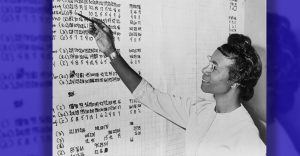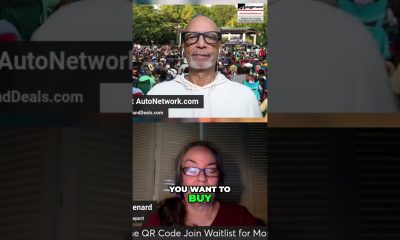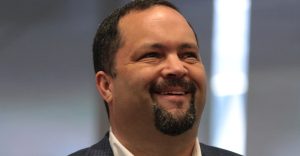Business
19-Year Old Black Biz Expert Gets Big Buy
By Princess Hayes
Special to the NNPA via The Atlanta Daily World
Earlier this year, while still just a freshmen in college, 19-year old Sherron A. Stevens released his first-ever book, entitled Undercover Customer: 100 Ways to Fix Your Broken Customer Service. This book provides 100 ways to deliver great customer service. Stevens, although a rookie in the industry, took his own front-line customer experiences from working at Chick-fil-a and put them into an easy-to-read guide.
The release of the book led to tons of publicity for Stevens, and even led to a major career opportunity for him. Stevens was recruited as a summer intern by Root Inc., an Ohio-based strategy execution consulting company, to work with the organization’s “Customers for Life” team. They were so impressed him and his book, that they have decided to buy more than 100 copies for each of their employees to have a personal copy.
“I am overwhelmed at the support of everyone around me including family, friends and co-workers. When you find a passion, EVERY single door will open. I never thought that Customer Service would be something I would be doing for the rest of my life,” Stevens.
Stevens, who has just completed his freshmen year of college, is working towards his Associates of Business degree from a local community college in Ohio. Upon completion, he is planning to transfer to Ohio University to get a Bachelor of Applied Human and Consumer Sciences (Customer Service).
He is a first generation college student who is letting nothing get in his way of success, and is hoping to take all of his experiences along with his college degree and start his own customer service consulting and training company. “I want to be an innovator in the Customer Service Business and connect people daily,” he says.
Here’s what others are saying about Undercover Customer:
“Sherron Stevens is passionate about everything he does including serving guests and working hard. He is always ready to laugh and brighten someones day.” — Karen Bolumen (Owner/Operator for Chick-fil-a)
“Customers and Service providers – young and old alike – will benefit from this book, and from this new author who surely will make great and welcome contributions to our world.” — Ron Kaufman (Author and Founder of UP! Your Service)
###
Alameda County
Seth Curry Makes Impressive Debut with the Golden State Warriors
Seth looked comfortable in his new uniform, seamlessly fitting into the Warriors’ offensive and defensive system. He finished the night with an impressive 14 points, becoming one of the team’s top scorers for the game. Seth’s points came in a variety of ways – floaters, spot-up three-pointers, mid-range jumpers, and a handful of aggressive drives that kept the Oklahoma City Thunder defense on its heels.

By Y’Anad Burrell
Tuesday night was anything but ordinary for fans in San Francisco as Seth Curry made his highly anticipated debut as a new member of the Golden State Warriors. Seth didn’t disappoint, delivering a performance that not only showcased his scoring ability but also demonstrated his added value to the team.
At 35, the 12-year NBA veteran on Monday signed a contract to play with the Warriors for the rest of the season.
Seth looked comfortable in his new uniform, seamlessly fitting into the Warriors’ offensive and defensive system. He finished the night with an impressive 14 points, becoming one of the team’s top scorers for the game. Seth’s points came in a variety of ways – floaters, spot-up three-pointers, mid-range jumpers, and a handful of aggressive drives that kept the Oklahoma City Thunder defense on its heels.
One of the most memorable moments of the evening came before Seth even scored his first points. As he checked into the game, the Chase Center erupted into applause, with fans rising to their feet to give the newest Warrior a standing ovation.
The crowd’s reaction was a testament not only to Seth’s reputation as a sharpshooter but also to the excitement he brings to the Warriors. It was clear that fans quickly embraced Seth as one of their own, eager to see what he could bring to the team’s championship aspirations.
Warriors’ superstar Steph Curry – Seth’s brother – did not play due to an injury. One could only imagine what it would be like if the Curry brothers were on the court together. Magic in the making.
Seth’s debut proved to be a turning point for the Warriors. Not only did he contribute on the scoreboard, but he also brought a sense of confidence and composure to the floor.
While their loss last night, OKC 124 – GSW 112, Seth’s impact was a game-changer and there’s more yet to come. Beyond statistics, it was clear that Seth’s presence elevated the team’s performance, giving the Warriors a new force as they look to make a deep playoff run.
Activism
Oakland Post: Week of November 26 – December 2, 2025
The printed Weekly Edition of the Oakland Post: Week of November 26 – December 2, 2025

To enlarge your view of this issue, use the slider, magnifying glass icon or full page icon in the lower right corner of the browser window.
Activism
Oakland Post: Week of November 19 – 25, 2025
The printed Weekly Edition of the Oakland Post: Week of November 19 – 25, 2025

To enlarge your view of this issue, use the slider, magnifying glass icon or full page icon in the lower right corner of the browser window.
-

 Activism4 weeks ago
Activism4 weeks agoOakland Post: Week of November 12 – 18, 2025
-

 Activism3 weeks ago
Activism3 weeks agoIN MEMORIAM: William ‘Bill’ Patterson, 94
-

 Activism4 weeks ago
Activism4 weeks agoHow Charles R. Drew University Navigated More Than $20 Million in Fed Cuts – Still Prioritizing Students and Community Health
-

 Bay Area4 weeks ago
Bay Area4 weeks agoNo Justice in the Justice System
-

 #NNPA BlackPress3 weeks ago
#NNPA BlackPress3 weeks agoLewis Hamilton set to start LAST in Saturday Night’s Las Vegas Grand Prix
-

 #NNPA BlackPress3 weeks ago
#NNPA BlackPress3 weeks agoBeyoncé and Jay-Z make rare public appearance with Lewis Hamilton at Las Vegas Grand Prix
-

 Activism3 weeks ago
Activism3 weeks agoOakland Post: Week of November 19 – 25, 2025
-

 #NNPA BlackPress4 weeks ago
#NNPA BlackPress4 weeks agoThe Perfumed Hand of Hypocrisy: Trump Hosted Former Terror Suspect While America Condemns a Muslim Mayor























































